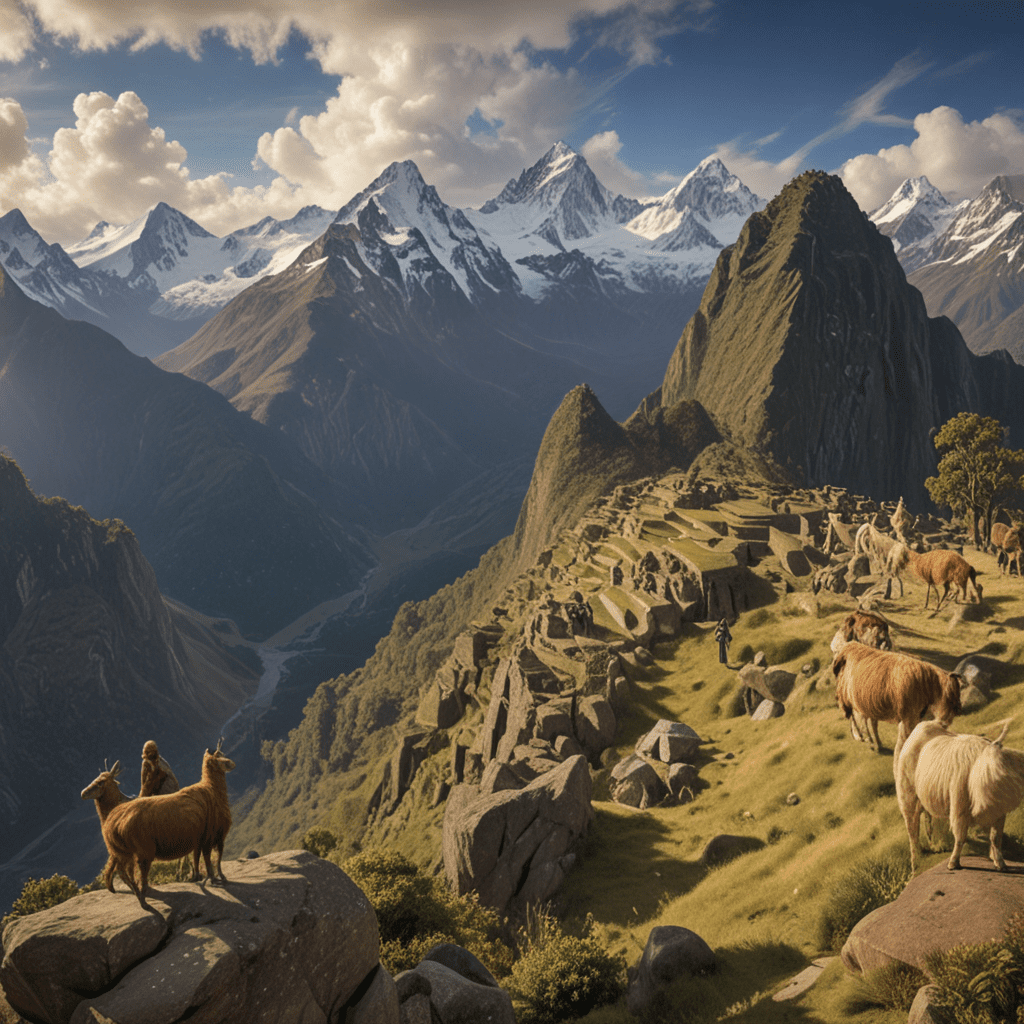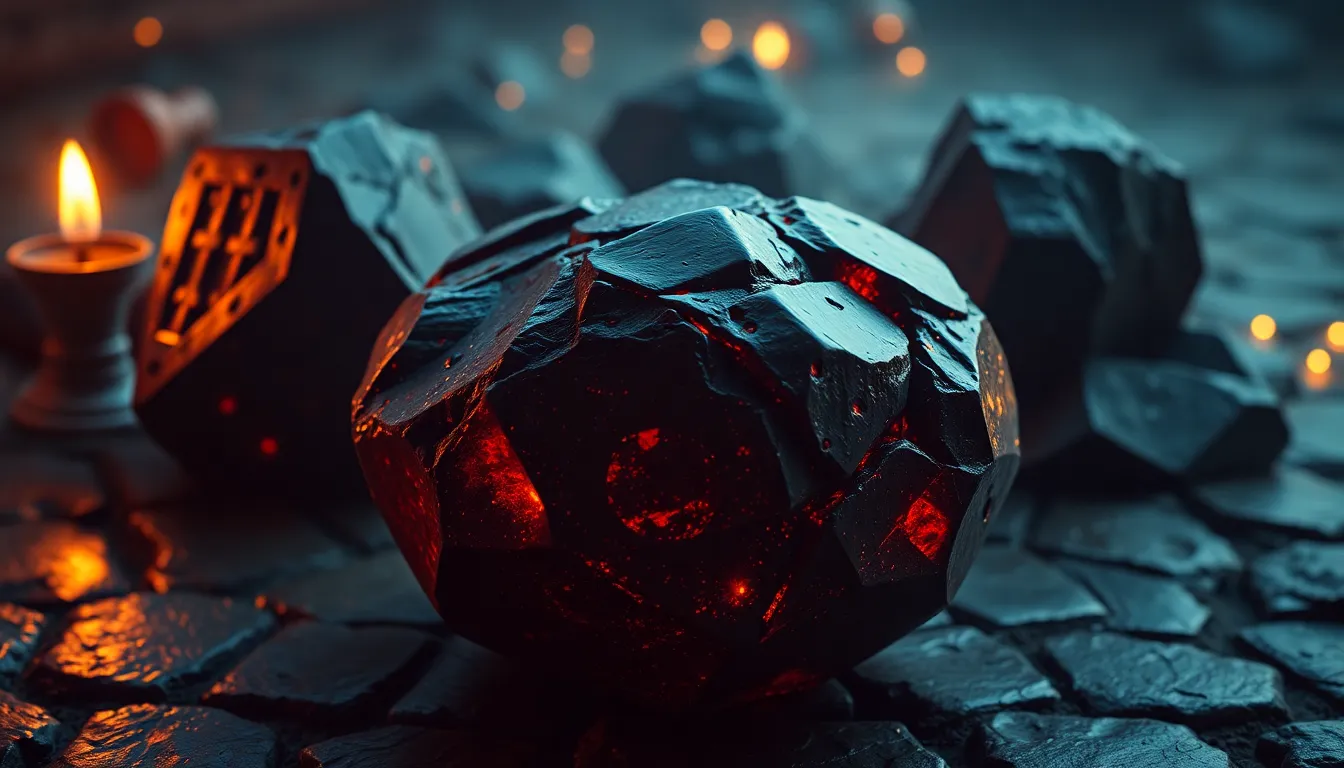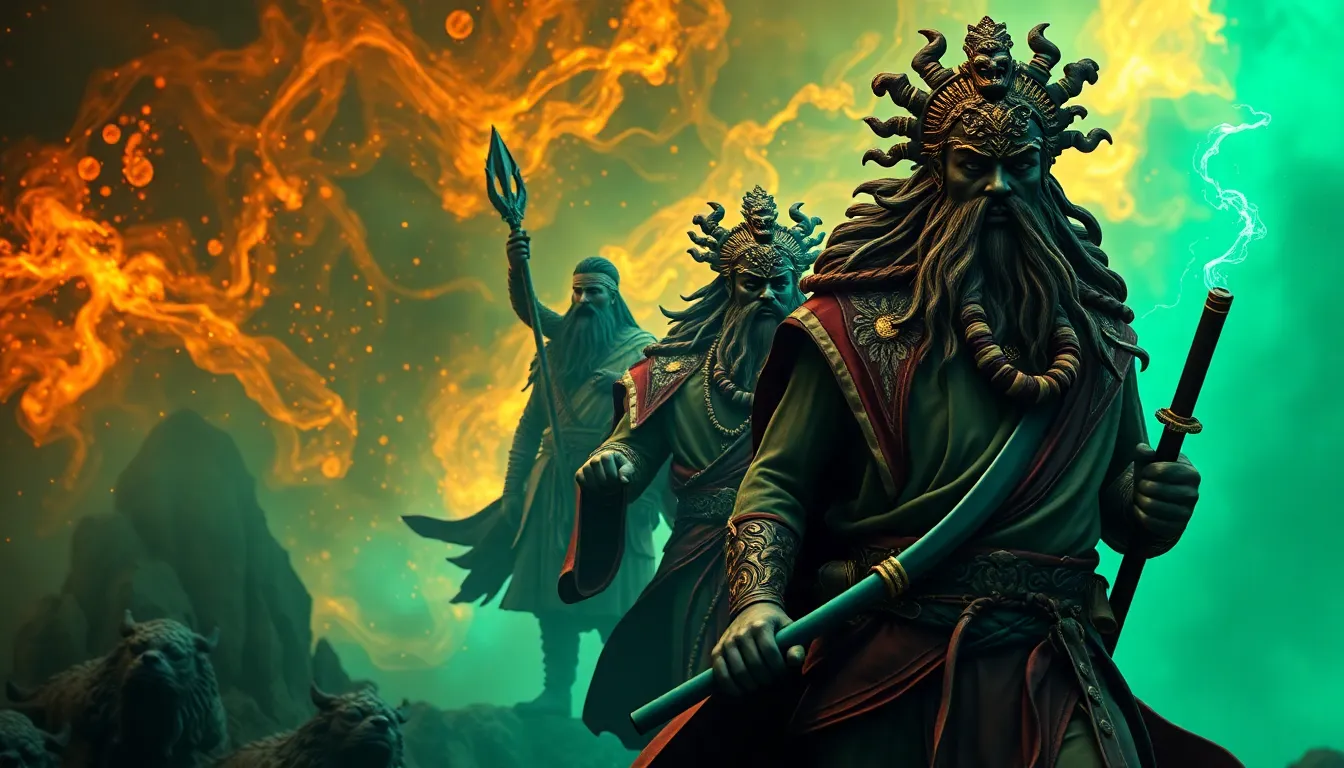The Divine Tapestry: How Creation Myths Weave Our Lives
I. Introduction
Creation myths serve as the foundational stories that explain the origins of the world and humanity. These narratives are a universal aspect of human culture, found in various forms across different civilizations. They not only provide explanations for the existence of life but also offer insights into the values, beliefs, and traditions of the societies that tell them.
The importance of mythology in human culture cannot be overstated. Myths play a critical role in shaping cultural identity, guiding moral principles, and influencing social norms. In this article, we will explore how creation myths form a divine tapestry that weaves through the fabric of human experience, reflecting our collective consciousness and individual identities.
II. The Role of Creation Myths in Human Society
Creation myths are deeply embedded in the cultural psyche, and their roles in society are multifaceted:
- Understanding cultural identity and heritage: Myths often reflect the history and values of a people, providing a sense of belonging and continuity.
- Creation myths as moral and ethical guidelines: These stories frequently include lessons about right and wrong, influencing the moral compass of societies.
- Influence on societal structures and norms: Many creation myths establish the roles of individuals within their communities, shaping social hierarchies and expectations.
III. Common Themes in Creation Myths
Despite the diversity of creation myths, several common themes emerge:
- The emergence of life from chaos: Many myths depict a primordial chaos that is transformed into order, symbolizing the potential for life to emerge from disorder.
- The relationship between gods and humans: Creation stories often explore the interactions between deities and humanity, highlighting themes of creation, destruction, and divine intervention.
- The significance of sacrifice and creation: Sacrifice is a recurring motif, where the act of giving up something for the sake of creation or balance is emphasized.
IV. Comparative Analysis of Major Creation Myths
Examining major creation myths reveals both unique and shared elements:
- The Genesis account in Judeo-Christian traditions: This narrative describes God creating the world in six days and resting on the seventh, emphasizing the divine order and human stewardship over creation.
- The Enuma Elish from ancient Mesopotamia: In this epic, the god Marduk defeats the chaos monster Tiamat to create the world, illustrating the theme of order emerging from chaos.
- The Popol Vuh of the Maya civilization: This text recounts the creation of humanity from maize, highlighting a deep connection between the people and their agricultural practices.
- The creation stories of Hinduism: Various accounts, including the cosmic dance of Shiva and the golden egg (Hiranyagarbha), showcase the cyclical nature of creation and destruction.
V. The Psychological Impact of Creation Myths
Creation myths have a profound psychological impact on individuals and societies:
- Carl Jung’s theories on archetypes and collective unconscious: Jung believed that myths tap into universal archetypes that resonate with shared human experiences.
- Creation myths as a means of coping with existential questions: These stories provide frameworks for understanding life, death, and the universe, offering comfort in the face of uncertainty.
- Personal identity and belonging through mythological narratives: Myths help individuals form their identities, connecting them to their cultural heritage and community.
VI. Creation Myths in Modern Contexts
In contemporary society, creation myths continue to influence culture:
- The reinterpretation of creation myths in contemporary culture: Modern adaptations of these myths often reflect current societal values and challenges.
- Creation myths in literature and art: Many artists and writers draw inspiration from creation myths, using them to explore themes of identity and existence.
- The role of creation myths in environmental movements: Myths that emphasize the interconnectedness of life can inspire movements aimed at environmental conservation and sustainability.
VII. The Influence of Creation Myths on Science and Philosophy
The interplay between creation myths and scientific thought is complex:
- Historical perspectives on science and mythology: Historically, myths provided explanations for natural phenomena before the advent of scientific reasoning.
- The conflict and synergy between creation myths and scientific explanations: While some myths conflict with scientific understanding, others can coexist, inspiring philosophical inquiries into existence.
- Philosophical implications of creation narratives: Creation stories raise fundamental questions about existence, purpose, and the nature of reality.
VIII. Creation Myths and Globalization
Globalization has a significant impact on creation myths:
- The blending of creation myths in multicultural societies: In diverse societies, various myths can merge, creating new narratives that reflect a fusion of beliefs.
- The impact of globalization on traditional narratives: Globalization can challenge traditional myths, leading to their reinterpretation or dilution.
- Preservation of cultural myths in a globalized world: Efforts are being made to preserve and promote traditional myths, recognizing their importance in cultural identity.
IX. Personal Reflections: How Creation Myths Shape Our Individual Lives
Creation myths can have a personal impact on beliefs and values:
- Personal beliefs and values derived from mythological narratives: Many individuals find inspiration and guidance in the morals of creation myths.
- The role of storytelling in personal and communal identity: Storytelling helps to reinforce shared values and strengthen community bonds.
- Engaging with creation myths in a modern context: Individuals can find relevance in these narratives by connecting them to current issues and personal experiences.
X. Conclusion
Creation myths are more than mere stories; they weave together the fabric of human experience, offering insights into our origins, values, and identities. By exploring and appreciating the diverse creation narratives that exist around the world, we can gain a deeper understanding of ourselves and our shared humanity.
As we navigate the complexities of modern life, let us continue to engage with these ancient stories, recognizing their ongoing relevance in shaping our lives and guiding our future.




